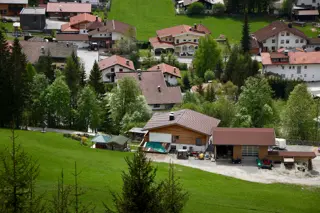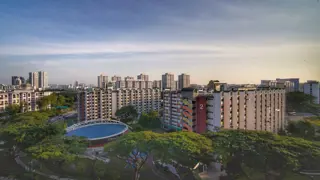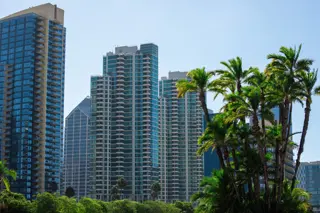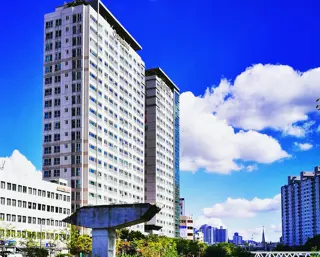
Nainital's property market shows stark regional contrasts with Mallital's 40% price corrections contrasting premium rates in tourist zones. Infrastructure projects and market liberalization reshape demand patterns.

Chennai’s property prices have grown steadily by 4-7% year-on-year, with both established and emerging areas fueling demand and driving price appreciation.

Despite strong demand, Jaipur recorded a 10% Q1 2025 drop in residential sales value contrasting with 17% growth in other state capitals across tier 2 cities. While urban infrastructure upgrades drive aspirational living supply-side challenges and delayed project completions temporarily dampened transactions. This dip highlights broader trends of premiumization in tier 2 markets.

Indore's residential property prices shoot up 26% in guideline rates, with micro-markets like Vijay Nagar and Super Corridor witnessing up to 190% spikes. IT sector expansion and major infrastructure projects drive demand and premium commercial leasing rates.

Faridabad’s prime sectors 79, 89, and Greater Faridabad attract investors with DDA-approved plots, upcoming metro connectivity, and master-planned infrastructure growth.

Mohali's real estate market shows rising appeal with robust infrastructure, luxury housing demand, and IT hubs driving long-term ROI opportunities for investors. Rapid development, strategic connectivity, and NRI investments position the city as Punjab's prime destination for residential and commercial growth.

Mumbai's property market achieved its strongest half-year performance in a decade during H1 2025, with 75,982 registrations and ₹6,727 crore revenue fueled by luxury home demand and strategic policy impulses.

Kochi's real estate boom shifts toward domestic buyers, reversing NRI dominance. End-user demand drives permanent housing, with 90% occupancy rates reported across premium projects.

Nainital's residential demand soars 49.43% YoY as remote work, tourism revival draw buyers. Tight supply (-21.05%) may push price growth, creating investment opportunities.

NRIs are increasingly targeting properties along Chennai’s ECR, OMR, and Anna Nagar for their potential in rental income and capital appreciation, driven by infrastructure development and a thriving IT sector. These regions combine luxury, stability, and strategic value.

Coimbatore's residential real estate market experienced a remarkable 52% year-on-year increase in sales value, reaching ₹1,120 crore in Q1 2025. This growth occurred despite an 8% drop in unit sales across India's top 15 tier-2 cities.

New Chandigarh leads Tricity with 70.5% property value appreciation, averaging ₹7,200 per sq ft. Planned development, proximity to amenities, and sustainable living drive demand, positioning it as the region's premier investment hub in 2025.

Noida's population surge to 9.3 lakh by 2025 fuels demand for residential and commercial properties, driven by infrastructure and economic growth.

Jaipur's prime neighborhoods like JLN Marg (295.6% value surge) and Manchwa (233.3%) dominate real estate growth, driven by modern infrastructure and economic expansion. This analysis explores key drivers, emerging investment hotspots, and market trends shaping the Pink City’s property boom.

Despite a 12% YoY drop in Hyderabad’s April 2025 property registrations, Ranga Reddy recorded a 2% rise in ₹1 crore+ home sales, contributing 51% of the district’s transaction value. Luxury demand surged in Medchal-Malkajgiri and Sangareddy, driven by spacious homes over 2000 sq ft.

Explore Nagpur’s evolving real estate landscape with analysis of 2025 land price trends across residential, commercial, and agricultural sectors. Discover zones seeing 8-30% annual appreciation, infrastructure-driven growth areas, and critical legal safeguards for secure investments.

Ongoing infrastructure development and proximity to commercial hubs have transformed OMR and ECR into Chennai’s fastest-growing residential corridors, attracting demand for affordable luxury villas, plotted developments, and integrated townships while maintaining price stability and steady sales growth.

Mangalore's coastal charm and heritage attractions propel demand for luxury second homes, attracting retirees and vacationers to invest in sea-facing properties, accelerating real estate appreciation in South India's emerging coastal hotspot.

Homes above ₹5 crore made up 6% of Mumbai’s registrations, up from 5% in 2024, highlighting luxury market vigor amid slower mid-range sales.

In June 2025, premium homes over ₹1 crore captured 51% of Rangareddy's total transaction value, with registrations surging 35% year-on-year, reflecting a strong shift toward luxury residential preferences.

Premium areas like Gomti Nagar and Hazratganj see 8-12% annual price growth. 2BHKs range from ₹65-80 lakh, 3BHKs up to ₹1.2 crore. IT professionals and investors drive demand amid infrastructure development and economic expansion.

Ahmedabad's 2025 home trends focus on climate-responsive design, featuring natural cooling systems, private outdoor spaces, and energy-efficient features, boosting demand for eco-conscious properties with terraces and landscaped areas.

Chandigarh witnesses record-breaking property transactions in premium areas like Sector 18-A and Motor Market, with a two-kanal house selling for ₹32 crore, signaling robust investor sentiment despite tax hikes and digital reforms.

Mangalore’s property market surges as prestigious institutions like NITK and Kasturba Medical College drive housing demand near emerging tech zones and infrastructure corridors, with IT parks and healthcare clusters boosting residential and commercial opportunities.

Mysore Road witnesses historic land price surge in 2025, with annual appreciation rates reaching 12–18% due to improved connectivity via the Bangalore-Mysore Expressway and metro expansions, driving demand for residential plots and commercial developments.


